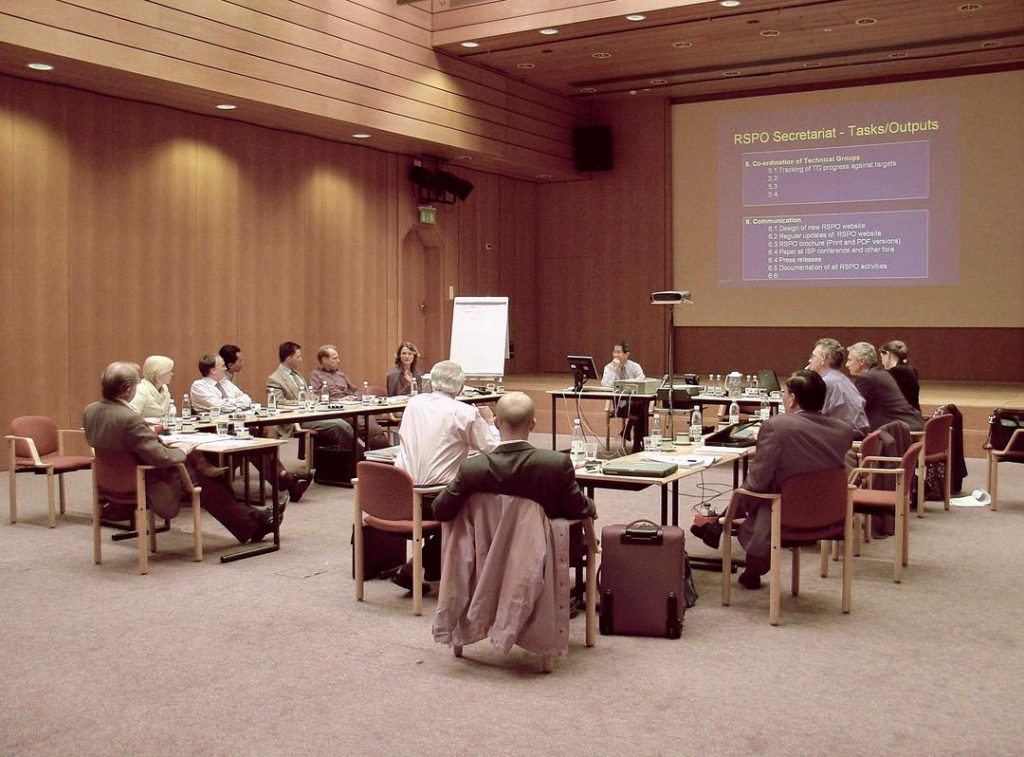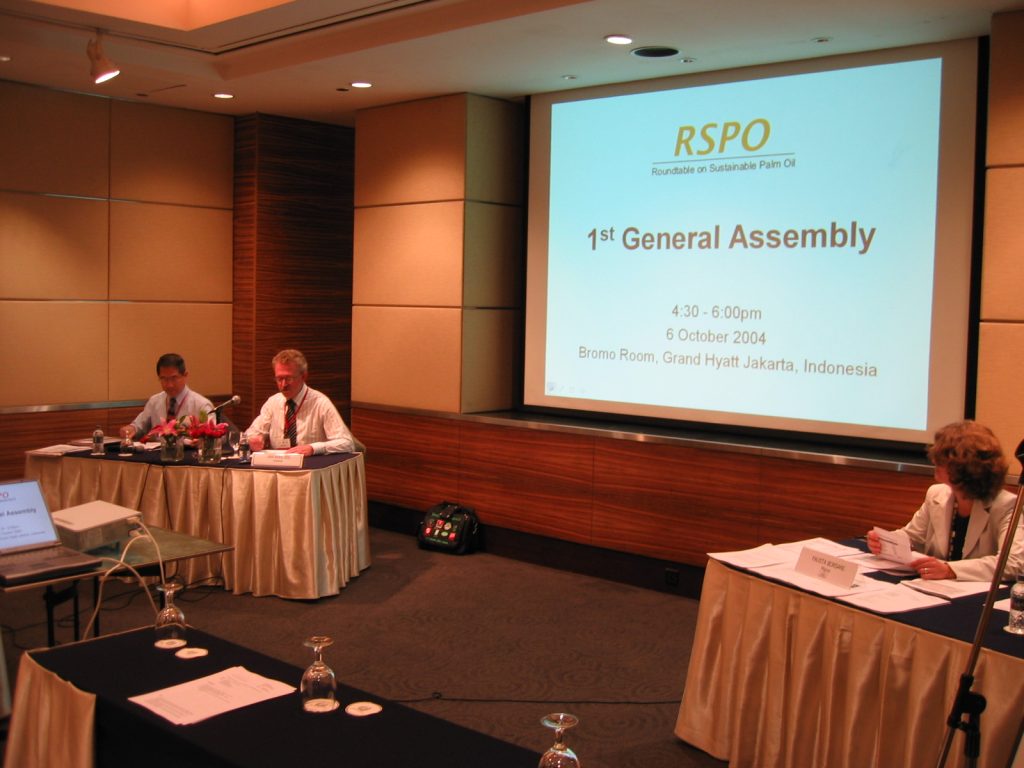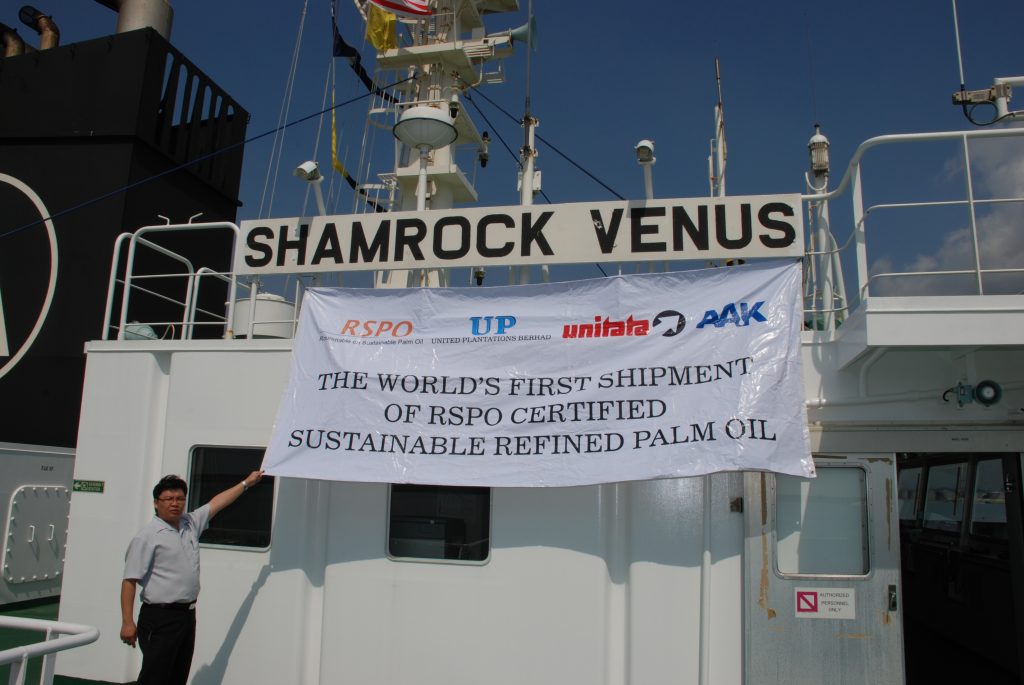On the 20th anniversary of RSPO’s official formation, founding members reflect on the global partnership’s earliest days and biggest milestones, and look towards the next 20 years in shaping a more sustainable future for the palm oil industry.

April 2024 marked a special milestone for the RSPO. The global partnership commemorated its 20th anniversary since it was formally established in 2004 by founding members the World Wildlife Fund (WWF), the Malaysian Palm Oil Association (MPOA), Unilever, AAK, and Migros.
From 16 countries and 200 participants adopting the Statement of Intent to support the roundtable process, RSPO has grown to nearly 6,000 voluntary members representing every link in the palm oil value chain, united by a shared commitment to make palm oil sustainable.

Dato’ Lee Yeow Chor, Chairman of the Malaysian Palm Oil Association (MPOA), underscored the pivotal role of RSPO, affirming, “RSPO is widely recognised today as the global gold standard for certified palm oil, particularly in Western countries, where it’s already a well-recognised scheme. RSPO and its members took that very significant step 20 years ago, and today the palm oil sector is at the forefront of addressing concerns about ESG and sustainability. Memberships have grown tremendously to nearly 6,000 members, who must play their parts in promoting sustainable palm oil.”
“Palm oil was becoming the dominant vegetable oil in the world, but that came with some consequences,” said Tim Stephenson, President, Global Sourcing and Trading and Sustainability, AAK. “We needed to get involved in order to ensure that there was a sustainable supply of palm oil. At that time, various organisations got together so that we could start to frame an organisation that would support sustainable palm oil.”
Sustainability milestones
Since 2004, RSPO has reached several milestones, including launching the Certification System in 2007 to lay the groundwork for inclusivity and progress, covering the most significant environmental and social impacts of palm oil production. A year later, the world’s first shipment of Certified Sustainable Palm Oil (CSPO) arrived in Rotterdam, the Netherlands.
“AAK imported the first Certified Sustainable Palm Oil (CSPO) into Europe in 2008, from United Plantations, and we’re very proud of that,” said Tim Stephenson, President, Global Sourcing and Trading and Sustainability, AAK.
“That was the starting point; the first impact created. What that little act showed was acceptance by a major consumer goods manufacturer of the RSPO Standard,” shared MR Chandran, RSPO founding Advisor.

In 2011, when global certified production area reached 1 million hectares, the RSPO Trademark was officially launched. Since then, its use has expanded from 12 to 82 countries and territories, gracing over 600 consumer products. RSPO’s most recent milestone was reached in 2024, with the launch of PRISMA (Palm Resource Information and Sustainability Management), an innovative certification, trade and traceability digital platform revolutionising trade practices and regulatory compliance across the palm oil industry.
“The time has come for RSPO to work in harmony with other certification bodies for us to initiate a dialogue with all the other respected standards and create a universal standard. We need to get more smallholders on board, find ways and means to start a dialogue session with the respective governments because national standards come under the governments,” said Chandran.
The next stage of a sustainable palm oil industry
On RSPO’s anniversary, representatives of the founding members reflected on the past two decades of the sustainability journey, sharing their insights on upcoming challenges and vision for a sustainable palm oil future.
Kamal Seth, WWF’s Global Palm Oil Director, advocates for heightened global regulations and frameworks to foster a more sustainable palm oil industry over the next two decades, saying, “For the next 20 years, we want to see stronger regulations and frameworks around the globe to create a more responsible palm oil industry. We want to see supply chain actors go beyond certification initiatives like the verified supply chain, ensuring palm oil production is free from deforestation conversion and human rights violations.”
“In the future, we want to see a shared ambition for truly sustainable palm oil, and level playing fields across the industry in respect of standards,” said Martin Huxtable, Global Sustainable Sourcing Director, Unilever. “We want to see those standards delivering verified positive impact for people and nature; a profitable and sustainable palm oil sector finds the right balance between social, environmental, and economic objectives. There is a shared responsibility between governments, the private sector, and civil society to ensure that the investments needed to secure a sustainable future does not lead to outsized burden and costs on the few.”
“The bottom line is sustainable palm oil – that is what we want to market and to prove to the world that the palm oil that we produce and consume is sustainable,” Chandran remarked.
Added Stephenson, “Now we’re at a point of inflection with RSPO where there is more regulation coming in, and we will have to be in a position to support members to meet the requirements of that legislation. RSPO is strong, and it can move forward in a good way. I’m optimistic about the future. “
Watch RSPO’s 20th anniversary video here.
Keep reading

Advancing Jurisdictional Certification in Sabah: Strengthening Collaboration Between RSPO, UNDP, and Jurisdictional Approach System for Palm Oil (JASPO)
Call for Expression of Interest: Independent Investigation of a Complaint

Leading Labels: RSPO Among Top Sustainability Labels in Dutch Market

The 21st International Oil Palm Conference Successfully Took Place in Cartagena, Colombia

Top Performers of the 2025 Shared Responsibility Scorecard

ACOP 2024: RSPO Market Trends Resilient Despite Global Challenges

RSPO: Actions for the Certification of Sustainable Palm Oil Production




